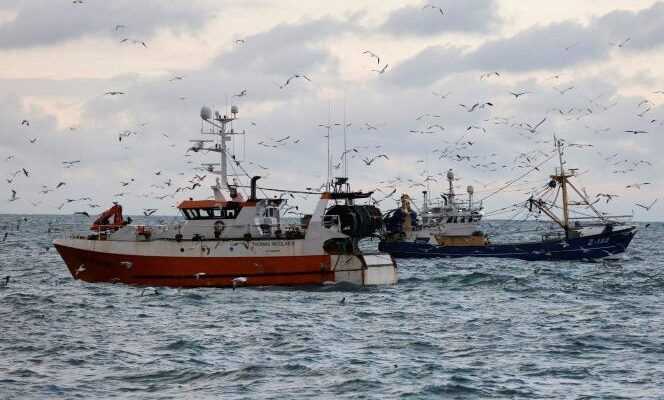This was one of the main points of tension despite the Brexit deal. The European Union (EU) and the United Kingdom reached an agreement in principle on the issue of fisheries on Wednesday 2 June, the European Commission announced. They managed to agree on the catches by their fishing vessels in jointly managed fish stocks for 2021.
The deal was finalized in a phone call between EU Fisheries Commissioner Virginijus Sinkevicius and UK Secretary of State for Environment, Food and Rural Affairs George Eustice. “This agreement ensures predictability and continuity for our fleets with TACs [totaux admissibles de capture] final for the rest of the year ‘, announced the commissioner in a press release. “It proves that two partners on both sides of the Channel can find agreements and move forward if they work together”, he congratulated himself.
The agreement guarantees the fishing rights of the EU and UK fleets in their respective waters until the end of 2021. It sets the TAC for 75 shared fish stocks for 2021, as well as for certain fish stocks. deep-sea fishing for 2021 and 2022, the Commission said. It also clarifies the access limits for species outside the quotas.
A source of tension
The signing of the agreement is expected in the coming days. It will also allow both parties to trade quotas.
Fishing was the hardest part of the negotiation of the post-Brexit trade deal between the EU and the UK. The catches of EU fishermen in UK waters weigh some 650 million euros each year.
The compromise found is a source of tension. European fleets had to give up 25% of their catches in British waters at the end of a transition period running until June 2026. This access will then be renegotiated annually.
European fishermen believe that this will prevent visibility and block investments. The requirement to obtain licenses adds to the discontent. French vessels must therefore prove that they were already fishing in the area over the reference period 2012-2016, which can be complicated for the smallest boats, which are not necessarily equipped with recording and monitoring systems. geolocation.
